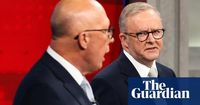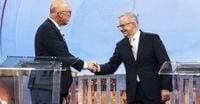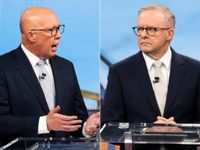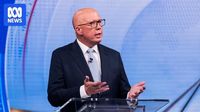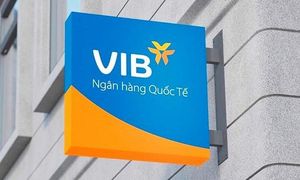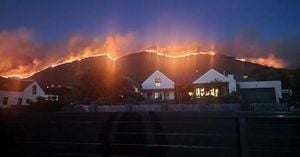In a heated third leaders' debate held on April 22, 2025, at Channel Nine in Sydney, Opposition Leader Peter Dutton and Prime Minister Anthony Albanese clashed on key issues affecting Australian voters ahead of the May 3 federal election. The debate unfolded against the backdrop of early voting and the recent death of Pope Francis, which had temporarily paused their campaigning.
Panelists from Nine, including political editor Charles Croucher and radio host Deborah Knight, offered mixed reviews on the debate's outcome. Croucher declared, "Very close, but I think by far Peter Dutton's best debate... in my eyes, he won by a nose," while Australian Financial Review's Phil Coorey leaned slightly towards Albanese, suggesting he edged it out. This debate, marked by sharp exchanges and personal accusations, was pivotal as both leaders sought to sway undecided voters.
The debate kicked off with a contentious exchange over Medicare funding. Albanese accused the Coalition of having "ripped" $80 billion from health and education in the 2014 budget. Dutton fired back, stating, "Prime Minister, you couldn't lie straight in bed. Honestly, this is unbelievable." Albanese countered, "You can go to personal abuse, that's a sign of desperation, Peter, frankly." This back-and-forth highlighted the tensions that have characterized the campaign, with accusations of dishonesty being a recurring theme.
Adding to the drama, an AAP FactCheck published earlier in March revealed that while Dutton had initially planned to cut hospital spending by $50 billion over the next decade, those cuts never materialized. The remaining portion of the alleged $80 billion reduction stemmed from projected savings in education. Dutton, however, did not specify any particular cuts during the debate, instead promising to work with central agencies to "identify where there are problems in the budget." Albanese seized on this, asserting, "There will be cuts afterwards. He's just confirmed that, but they won't tell you what they are now. That's just not being fair dinkum."
Energy policy emerged as another significant point of contention. Dutton expressed commitment to nuclear power, arguing that Australia is "paying three times the cost of electricity" compared to nations with nuclear energy supporting their renewables. He claimed, "If that were the case, why have your power bills gone up by $1300 instead of down by $275?" Albanese responded by outlining the obstacles to nuclear energy in Australia, including a national moratorium and opposition from various states. He emphasized the need for a clean energy transition, stating, "This is a friendless policy because it doesn't stack up. That's why the business community signed up to our plan for a 43 percent reduction by 2030, renewables backed by gas, hydro, and batteries."
Both leaders were also questioned about their approaches to dealing with powerful foreign leaders, particularly U.S. President Donald Trump. Dutton, who had previously admitted to never meeting Trump, highlighted his experience with both Obama and Trump administrations, while Albanese dismissed Dutton's claims of negotiating exemptions for tariffs as "complete nonsense." This exchange underscored the stakes of international relations in the current political climate, especially with ongoing global conflicts.
In a rare moment of bipartisanship, both leaders agreed on the need for big tech companies to compensate Australian news outlets and expressed concern about young children’s access to social media. Dutton noted that both major parties were on a "unity ticket" regarding news bargaining incentives, while Albanese praised the proposed social media ban for under-16s as "world-leading." This moment of agreement provided a brief respite from the otherwise combative atmosphere.
The debate also saw both leaders acknowledging each other's families as a sign of respect, with Dutton stating that Albanese's son is "a great young bloke," and Albanese reciprocating by praising Dutton's family. This gesture, however, did little to mask the underlying tensions as both leaders returned to their prepared talking points.
As the debate drew to a close, Dutton described the upcoming election as a "sliding doors moment" for Australia, emphasizing the need for strong leadership in uncertain times. He outlined his plans to cut the fuel tax excise and support first-home buyers, while Albanese promised to prioritize cutting student debt by 20 percent if re-elected.
Despite the intensity of the debate, many observers felt that neither leader had a standout moment that would significantly shift public opinion. Croucher noted that while Dutton performed better than in previous debates, the overall engagement was somewhat lackluster. As the candidates prepare for the final debate on April 27, 2025, it remains to be seen whether they will break from their scripted responses to address the pressing issues facing Australian voters.
With the election just weeks away, both leaders are under pressure to connect with a populace increasingly concerned about cost of living, energy prices, and healthcare. As they continue to campaign, the importance of these debates in shaping the electoral landscape cannot be overstated.
